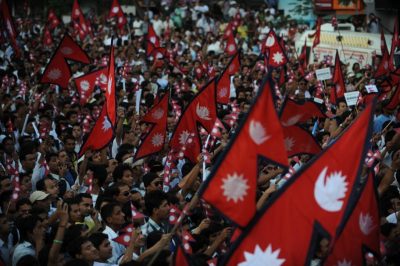Nepal’s Anti-Conversion Law Is More About National Security Than Christianity

Note to readers: please click the share buttons above
Nepal’s anti-conversion law just came into effect.
The new restrictions were originally promulgated late last year and outlaw proselytization practices that are understood as implicitly targeting the historically Hindu country’s rapidly growing community of Christian evangelicals despite ostensibly being aimed at protecting the feelings of religious believers. A key component of the legislation decrees that
“No one should convert a person from one religion to another religion or profess their own religion and belief with similar intention by using or not using any means of attraction and by disturbing the religion or belief of any ethnic groups or community that’s been practiced since ancient times.”
In other words, it’s meant to preserve Hinduism in the face of aggressive Christian campaigning that has seen the country’s believers in Christ triple over the past decade as religious NGOs flooded into Nepal and allegedly took advantage of its socio-economically vulnerable population to spread the Gospel. The foreign-backed spread of Christianity has always been a sensitive issue in some Asian countries because of the legacy of imperialism and reliance on religious figures as “fifth columnists”, especially because of the potential that they have for disrupting the status quo in traditional societies and exploiting Christian tenets for “revolutionary” purposes.
What’s interesting about all of this is that Nepal’s present government isn’t comprised of Hindu traditionalists but of secular communists, though they understand the long-term challenge that foreign-backed religious minority organizations can pose to national stability. The claims that this amounts to religious favoritism and “going back to a Hindu Kingdom” are inaccurate because the ruling Chinese-friendly authorities aren’t by any stretch of the imagination biased towards India and its interests but are trying to delicately “balance” relations between their two Great Power neighbors. This law should therefore be understood as being driven by national security considerations instead of anything else.
Nevertheless, because it does indeed aim to counter the growing influence of foreign Christian NGOs in the country, it’s probably going to lead to more of an intensified infowar against the authorities that’s actually fueled by the government’s unprecedented Silk Road and military partnerships with China, not its supposed support of potentially Indian-influenced Hindus. The perception management gimmick is that a genuinely Chinese-friendly government is being attacked for supposedly being pro-Hindu in order to destabilize it and lead to political concessions that are actually in India’s interests, with Christians just being used as bait to attract as much international attention – and possibly, condemnation – as possible.
*
This article was originally published on Oriental Review.
Andrew Korybko is an American Moscow-based political analyst specializing in the relationship between the US strategy in Afro-Eurasia, China’s One Belt One Road global vision of New Silk Road connectivity, and Hybrid Warfare. He is a frequent contributor to Global Research.
Featured image is from the author.

